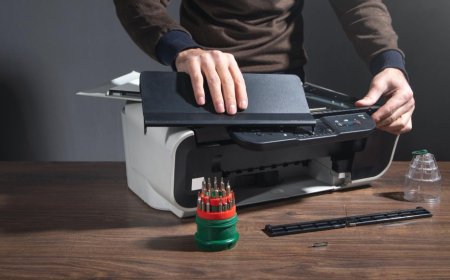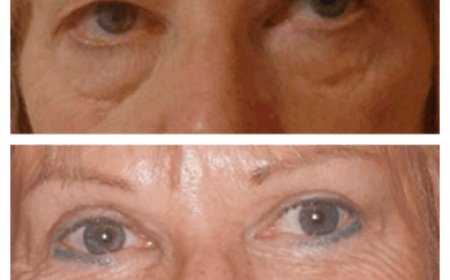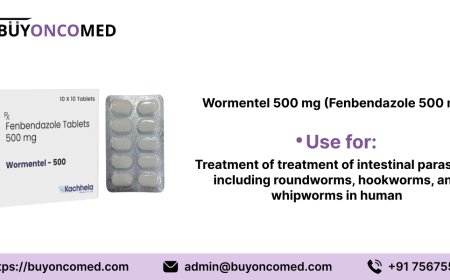The Importance of Good Dental Hygiene During Orthodontics
Maintain healthy teeth during orthodontics with proper brushing, flossing, and dental visits. Tips for braces and Invisalign users for lasting results.

Good dental hygiene is essential when undergoing orthodontic treatment. Braces, aligners, and other orthodontic appliances can make cleaning teeth more challenging, increasing the risk of plaque buildup, cavities, and gum problems. Maintaining excellent oral care throughout treatment not only supports your overall dental health but also ensures the best possible results. This article highlights why proper hygiene is crucial during orthodontics and offers practical tips for keeping your smile healthy and bright.
Why Dental Hygiene Matters More During Orthodontic Treatment
Undergoing orthodontic treatment, whether with traditional braces or Invisalign, changes the way you care for your teeth. Appliances create more places for food particles and bacteria to hide, making regular cleaning vital. If neglected, this can lead to enamel decay, gum inflammation, and even prolong treatment time. According to studies, patients with braces have a higher risk of white spot lesions in areas of enamel demineralisation affecting up to 50% of orthodontic patients (Featherstone, 2008).
Maintaining good oral hygiene ensures your teeth and gums stay healthy throughout the treatment, allowing your orthodontic appliances to work effectively.
How Orthodontic Appliances Affect Oral Hygiene
Traditional Braces and Their Challenges
Braces consist of brackets, wires, and bands that trap food and plaque, making brushing and flossing tricky. The design creates many nooks and crannies where bacteria can thrive, increasing the risk of:
- Cavities forming around brackets
- Gum swelling and bleeding
- Bad breath caused by bacteria buildup
Invisalign and Hygiene Considerations
Invisalign Belfastusers benefit from removable clear aligners, which simplify cleaning. Still, diligent care is necessary to avoid plaque accumulation on both teeth and the aligners themselves. Leaving aligners dirty or wearing them while eating can increase the risk of decay and gum issues.
Key Tips to Maintain Excellent Oral Hygiene During Orthodontics
Brushing Techniques and Tools
Starting with brushing, a regular soft-bristle toothbrush may not reach all the hard-to-clean spots around braces or under wires.
- Use an electric toothbrush with an orthodontic head for better plaque removal.
- Brush after every meal to prevent food debris buildup.
- Hold the brush at a 45-degree angle, cleaning around brackets and wires carefully.
- Brush the gumline gently to reduce inflammation risks.
Flossing Strategies
Flossing becomes more complex with braces, but its crucial for removing plaque between teeth.
- Use floss threaders or orthodontic flossers to navigate around wires.
- Water flossers can be effective and easier for some patients.
- Make flossing part of your daily routine to prevent gum disease.
Cleaning Aligners Properly
For those with Invisalign, cleaning aligners is equally important.
- Rinse aligners whenever removed.
- Clean with a soft toothbrush and clear, gentle soap (avoid toothpaste, which can be abrasive).
- Soak aligners occasionally in cleaning solutions designed for clear aligners.
The Role of Regular Dental Visits
Even with great home care, regular visits to yourDentist in Belfast are necessary during orthodontic treatment. These appointments include:
- Professional cleaning to remove hardened plaque (calculus)
- Monitoring gum health and tooth condition
- Adjustments to orthodontic appliances
Dental check-ups can detect early signs of dental issues that home care might miss, protecting your smile during and after treatment.
Nutritions Impact on Oral Health While Wearing Braces
What you eat affects dental hygiene significantly during orthodontic treatment.
Foods to Avoid
- Sticky sweets like toffee or caramel can stick to brackets.
- Hard foods such as nuts and popcorn can damage wires.
- Sugary snacks increase cavity risks.
Foods That Support Healthy Teeth
- Crunchy vegetables (carrots, celery) help clean teeth naturally.
- Dairy products provide calcium to strengthen enamel.
- Drinking plenty of water helps wash away food debris and bacteria.
Balanced nutrition combined with diligent hygiene supports better outcomes in orthodontics.
Managing Common Orthodontic Oral Hygiene Issues
White Spot Lesions
These are the early signs of enamel decay, often seen around braces brackets due to poor hygiene.
- Prevent by maintaining a strict cleaning routine.
- Use fluoride toothpaste and mouth rinses to strengthen enamel.
Gum Inflammation
Gums may become swollen and bleed if plaque isnt properly removed.
- Gentle but thorough brushing and flossing can reduce gum problems.
- Regular professional cleanings help manage gum health.
Innovations in Orthodontic Hygiene Tools
Modern dental care offers helpful tools to assist patients during orthodontic treatment.
|
Tool |
Purpose |
|
Interdental Brushes |
Clean between teeth and around brackets |
|
Water Flossers |
Use water jets to remove plaque gently |
|
Orthodontic Toothbrushes |
Specially designed to clean braces |
These tools, recommended by your Dentist in Belfast, improve hygiene outcomes and make oral care more manageable.
The Importance of Commitment to Oral Hygiene with Invisalign
Patients choosing Invisalign Belfast appliances often assume less risk of plaque buildup due to removability. However, commitment to oral hygiene remains critical.
- Aligners should be removed when eating or drinking anything but water.
- Teeth and aligners must be cleaned before reinsertion to prevent bacterial growth.
- Neglecting cleaning can lead to cavities or gum issues, potentially delaying treatment progress.
Common Mistakes to Avoid in Orthodontic Dental Care
- Skipping brushing after meals due to inconvenience.
- Using hard-bristle toothbrushes that damage gums.
- Neglecting flossing because its difficult with braces.
- Wearing aligners while eating or drinking sugary beverages.
- Missing regular dental appointments.
Avoiding these errors protects your teeth and ensures a smoother orthodontic journey.Orthodontic treatment is a journey that demands consistent effort to maintain good dental hygiene. Whether you wear traditional braces or Invisalign, prioritising cleaning routines, visiting your dentist regularly, and adopting a healthy diet play crucial roles in protecting your teeth and gums. This approach prevents complications and supports achieving that perfect, confident smile at the end of treatment.
Conclusion
Good dental hygiene during orthodontic treatment is essential for maintaining healthy teeth and gums, avoiding complications, and achieving successful results. With consistent care, the right tools, and support from your dental team, your orthodontic journey will be smoother and more comfortable. Regular visits to your dentist and commitment to cleaning routines make a significant difference in the outcome. The team at EDB encourages every patient to stay dedicated to their oral hygiene for lasting, beautiful smiles.































